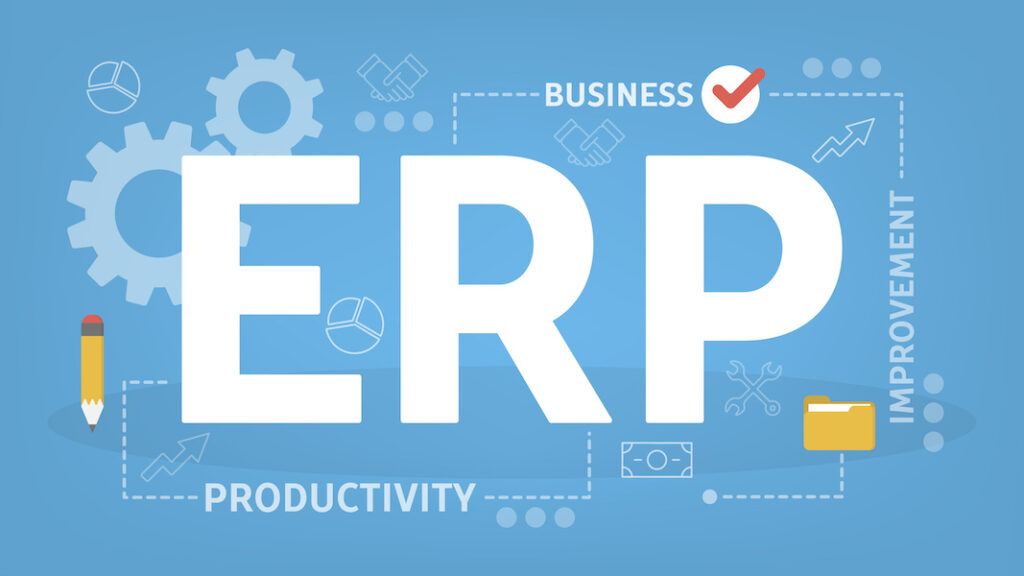The myth persists that ERP systems are only for large companies with complex business processes. But this is a fallacy, because the introduction of an ERP system can also make sense for medium-sized companies. In this article, we would like to take a closer look at the advantages that the introduction of an ERP system can have and for which types of companies it could be particularly interesting.
What are ERP systems?
Before we take a closer look at why the introduction of an ERP system can also make sense for medium-sized companies, let's first get an overview of what an ERP system actually is and how it works. An ERP system is a type of business software that covers all of a company's key business processes, such as finance, purchasing, production, warehousing and sales. It provides a centralized database that collects and manages all the information from the different departments of the company to ensure seamless and efficient operations management. The ERP is designed to help a company automate and optimize business processes to reduce operating costs and increase revenue.
What are the advantages of an ERP system?
Improved efficiency
A major advantage of ERP systems is the improvement of business efficiency. Since all business processes are managed in a central database, information can be exchanged quickly and easily. This leads to a reduction in manual input and an increase in the speed and accuracy of processes. In addition, ERP systems allow many business processes to be automated, such as in order processing, warehouse management or accounting. This allows employees to save time and focus on value-added tasks instead of dealing with manual, repetitive activities. A typical example is the automation of invoice creation: With an ERP system, invoices can be automatically created and sent to the customer without an employee having to manually create an invoice and send it by mail.
More clarity in decision making
An ERP system collects and stores all relevant data on business processes in real time. Management can use this data to react more quickly to business developments and make better decisions. At a glance, management can see how sales of a particular product have developed in recent months and decide on this basis whether it makes sense to produce more of this product or not.
Cost reduction
An ERP system can help reduce costs by optimizing business processes and making better use of resources. For example, by using automatic ordering, a company can ensure that it only orders as much merchandise as it actually needs. This avoids overstocking and reduces storage and administration costs.
More transparency
An ERP system provides a comprehensive overview of all business processes, allowing weaknesses to be quickly identified and remedied. For example, a company can use an ERP system to quickly identify when a product is not in sufficient demand and it therefore makes sense to stop production or remove the product from the range.
Scalability
ERP systems can be customized to meet the needs of companies of any size. A medium-sized company can grow with an ERP system by adding additional functions and modules. An example would be the integration of CRM (Customer Relationship Management) functions to improve customer service and optimize customer management.
Companies that can particularly benefit from the introduction of an ERP system
Whether the introduction makes sense for a medium-sized company always depends on the specific needs of a company. Experience shows that ERP systems are often of interest to companies in certain industries. These include, for example
Manufacturing Company
Since manufacturing companies often have many different processes and departments, an ERP system can help coordinate and optimize them. Production planning and control can be automated and inventory management optimized to minimize delivery times and material requirements.
Trading company
Retail companies can also benefit from an ERP system, especially if they have many different products and suppliers. The system can help monitor and manage orders and deliveries to ensure that products are delivered on time and inventory is managed optimally.
Service company
Even service companies can benefit from an ERP system, especially if they have many different clients and projects. The system can help manage working hours and costs and optimally plan resources to complete projects effectively.
Company with multiple locations
Companies with multiple locations can benefit from an ERP system as it enables them to centrally manage and optimize their business processes. By integrating data from different locations, companies can increase their efficiency and better coordinate their operations.
Conclusion
In summary, ERP systems can also be a worthwhile investment for medium-sized companies. They offer numerous advantages such as cost savings, greater transparency and scalability, which can help to optimize business processes and put the company on course for growth. However, it should be noted that every company has individual requirements and needs that must be taken into account when selecting and implementing an ERP system. However, those who make the right choice and use the system effectively can benefit from the advantages of an ERP system in the long term. We will be happy to help you.

